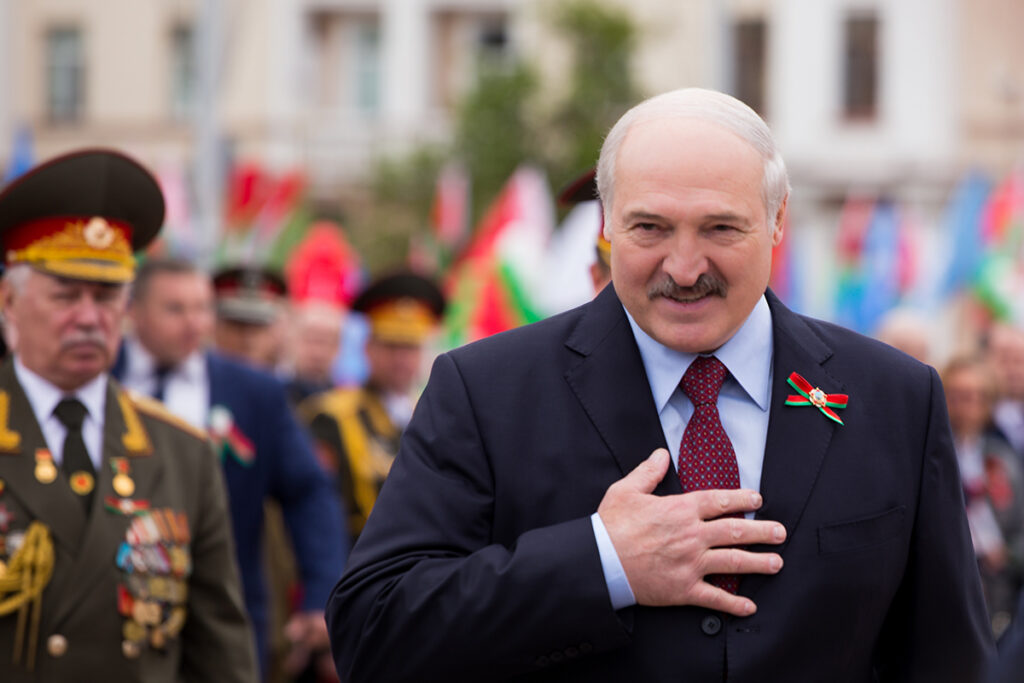Belarusian President Alexander Lukashenko has been sworn in for his seventh term, reaffirming his grip on power despite widespread opposition and international condemnation. The ceremony, held at the Independence Palace in Minsk, was attended by thousands of supporters, while critics denounced his continued rule as illegitimate.
Disputed Election and Tightened Control
Lukashenko, who has ruled Belarus with an iron fist since 1994, secured nearly 87% of the vote in the tightly controlled election on January 26. The result was widely rejected by opposition groups and human rights organizations, which described the vote as a predetermined outcome rather than a fair democratic process. The four candidates who appeared on the ballot alongside him publicly praised his leadership, raising further doubts about the election’s legitimacy.
In the years leading up to this election, Lukashenko has systematically suppressed political opposition. Many of his critics have been jailed or driven into exile, while independent media outlets have been forcibly shut down. His administration has been accused of implementing an unrelenting crackdown on dissent, particularly after the 2020 presidential election, which sparked massive protests across the country. In the aftermath, more than 65,000 people were detained, with thousands facing police brutality. Numerous civil society organizations and human rights groups have been banned, and Belarus is currently believed to hold over 1,200 political prisoners, including Nobel Peace Prize laureate Ales Bialiatski.
Opposition Rallies and International Reaction
As Lukashenko took the oath of office, opposition groups held rallies abroad, marking the anniversary of Belarus’ short-lived independence in 1918. Exiled opposition leader Sviatlana Tsikhanouskaya, who ran against Lukashenko in 2020 before being forced to flee the country, reiterated her commitment to fighting for a democratic Belarus free from Russian influence. She emphasized the opposition’s goal of restoring Belarus’ place in the European community and ending Lukashenko’s authoritarian rule.
Human rights organizations and Western governments have condemned Lukashenko’s latest term, calling the political climate in Belarus a deepening crisis. According to Belarusian human rights groups, the election took place under an atmosphere of fear, with repression targeting civil society, the media, and political opponents.
Lukashenko’s Support from Russia
Despite international backlash, Lukashenko continues to rely on strong backing from Russian President Vladimir Putin, with whom he has maintained close ties. His rule has been propped up by Russian financial support and political assistance, particularly during the mass protests of 2020.
This alliance has further solidified Belarus’ position as a strategic partner for Moscow, with Lukashenko allowing Russian forces to use Belarusian territory for the 2022 invasion of Ukraine. More recently, Belarus has also hosted Russian tactical nuclear weapons, reinforcing its alignment with the Kremlin.
Future Relations with the West
Some analysts believe that, despite his reliance on Russia, Lukashenko may seek to improve relations with the West during his seventh term. In an attempt to reduce Belarus’ dependence on the Kremlin and alleviate the impact of Western sanctions, he has reportedly signaled a willingness to engage in dialogue with Western nations. Whether such overtures will lead to any policy shifts remains uncertain, as Belarus remains under heavy scrutiny for its human rights record and its role in supporting Russian military actions.
For now, Lukashenko’s leadership appears firmly entrenched, but opposition forces continue to push for political change. With widespread discontent among exiled Belarusians and ongoing Western pressure, Belarus’ future remains uncertain as the country enters yet another chapter of its long-standing authoritarian rule.


